Before Coca, There Was Coffee
Cultivating Peace in Colombia
Inside a tall, garage-like room with open doors and burlap sacks piled high, a man throws a handful of what looks like dried peanuts onto a small mat and crushes them into the floor with his shoe. Freed from their outer husk (known as parchment), he shakes the mat’s contents onto a table where they can be examined up close for what they really are: green Colombian coffee beans.
From here, he’ll examine the beans for any defects—ones that are broken, shriveled or show signs of fungus damage—and segment them into a pile. He’ll then determine what percentage of that pile of defective beans represents the whole, running a calculation based on the weight of the supplied bag, its moisture content, and the current market price of coffee, which, second in volatility only to petroleum, greatly fluctuates. It’s updated by Colombia’s National Federation of Coffee Growers (FNC) twice per day.
In this case, a woman intending to sell a nineteen-kilogram bag of coffee generates a yield worth roughly $30 USD. She’s handed a receipt to take around the corner to the headquarters of the Cafioccidente Cooperative, where she exchanges it for cash. Her beans will then be sold by the co-op through an exporter to an importer to a roaster, who will sell or serve the coffee to customers thousands of miles away from where the coffee was originally grown.
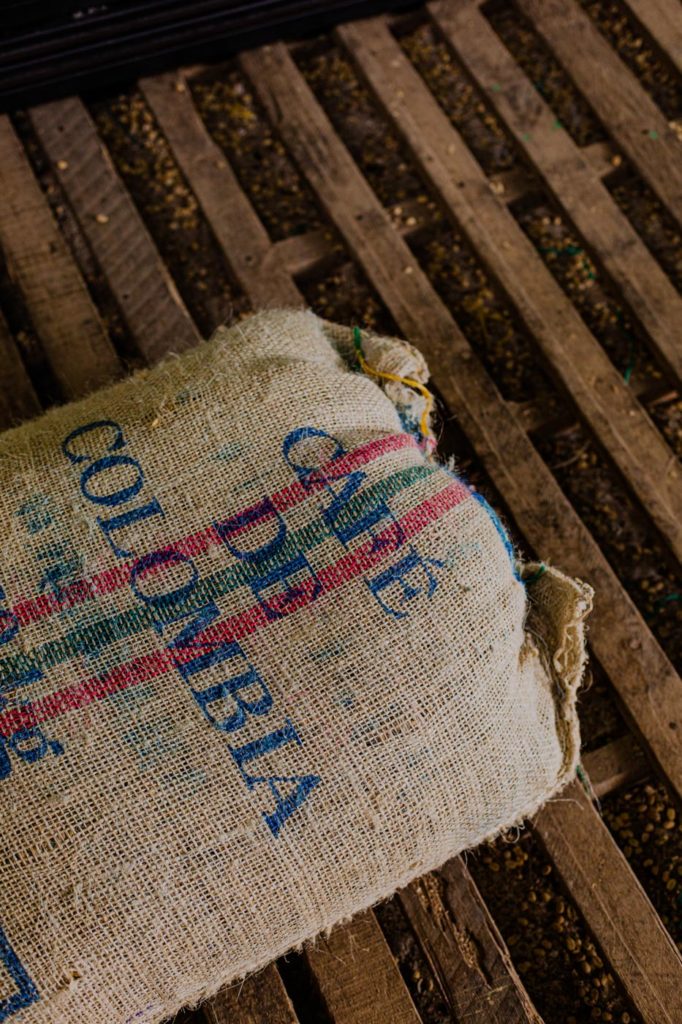
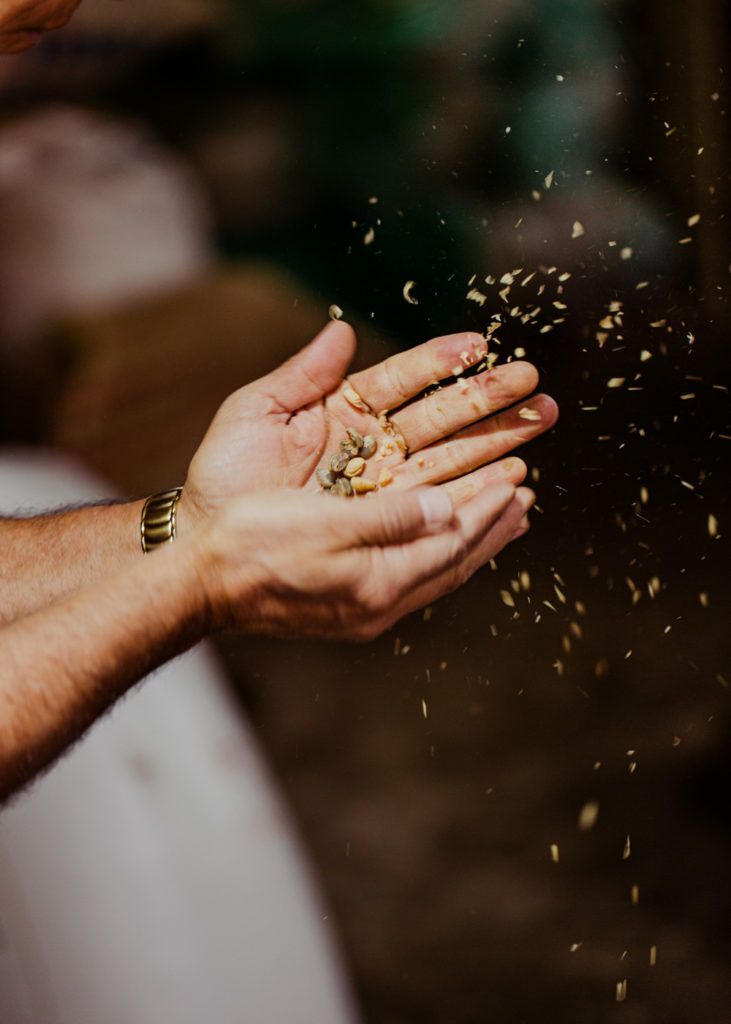
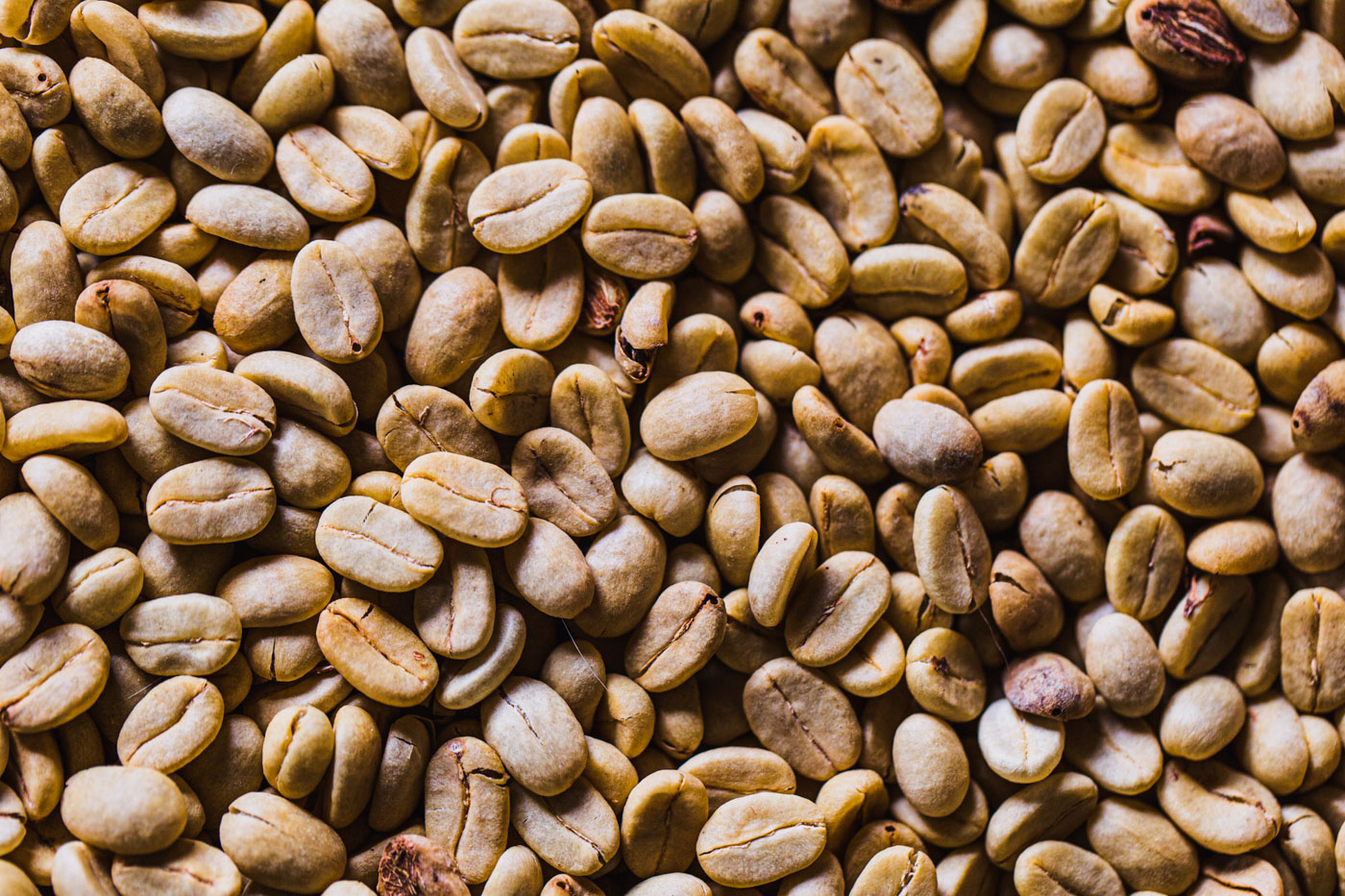
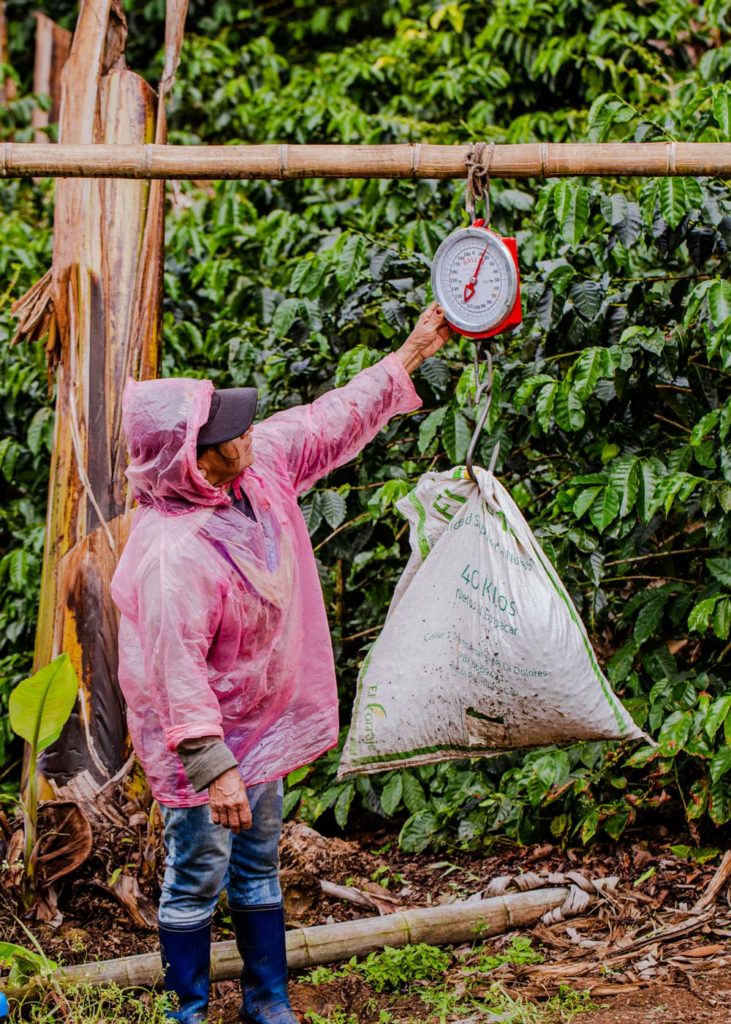
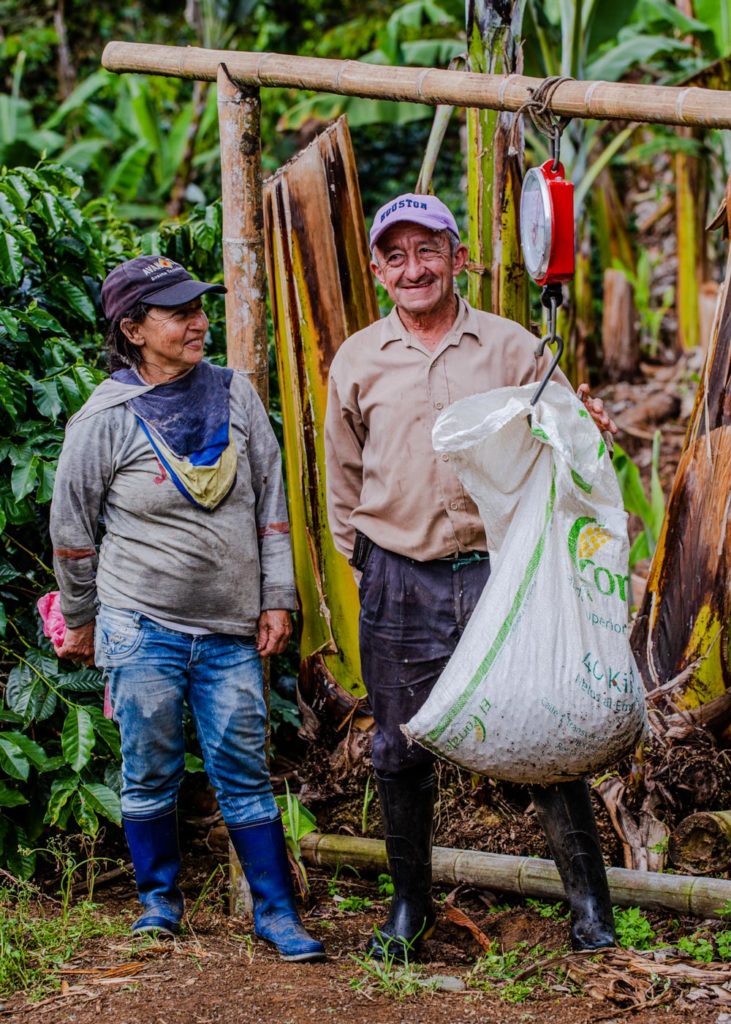
In Colombia, this is a labor of peace. In a country branded for decades by its opposite, peace is hard work that changes hands many times over. Coffee is its oldest ally.
“To have peace take hold in Colombia, there have to be good economic alternatives,” explains David Pohl, a consultant with the USAID Producers to Market Alliance Coffee for Peace initiative, which is now two years into a three year-program. “There have to be legal activities [farmers] can do that are sustainable so they can provide for their families. Otherwise, the peace process doesn’t work.”
Colombia is the largest producer of washed coffee in the world, third overall in coffee production behind Brazil and Vietnam. It’s been exporting beans to the United States since 1835. In 1959, the FNC introduced Juan Valdez (a fictional character created by the New York advertising agency Doyle Dane Bernbach) as a way to represent the numerous small-scale farmers that produce the country’s “100% Colombian Coffee.” In 2005, the logo featuring a mustachioed Valdez and his mule, Conchita, was awarded Advertising Week’s “Advertising Icon of the Year” along with the Geico gecko. It remains one of the most recognizable logos worldwide.
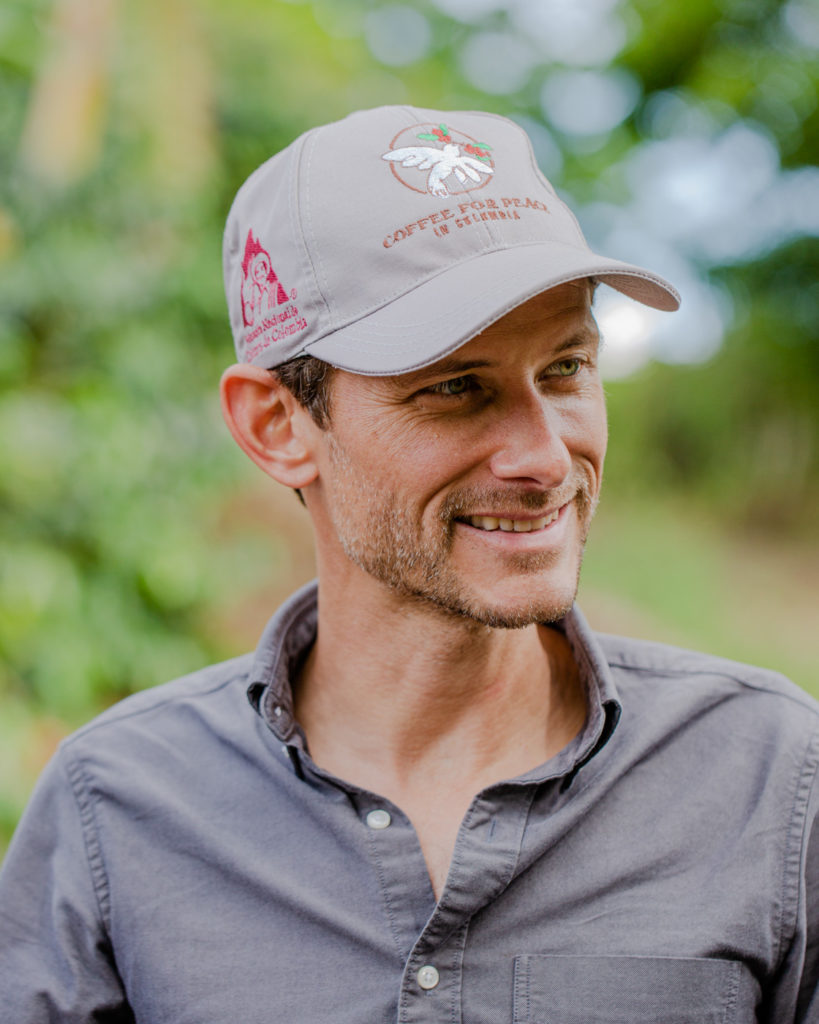
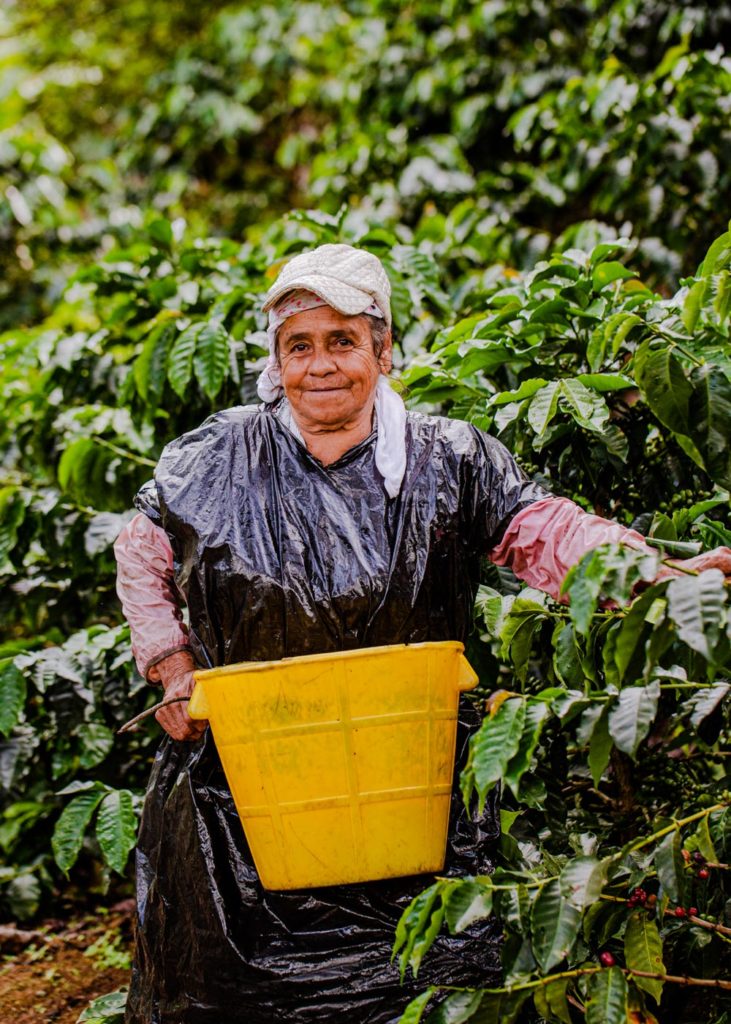
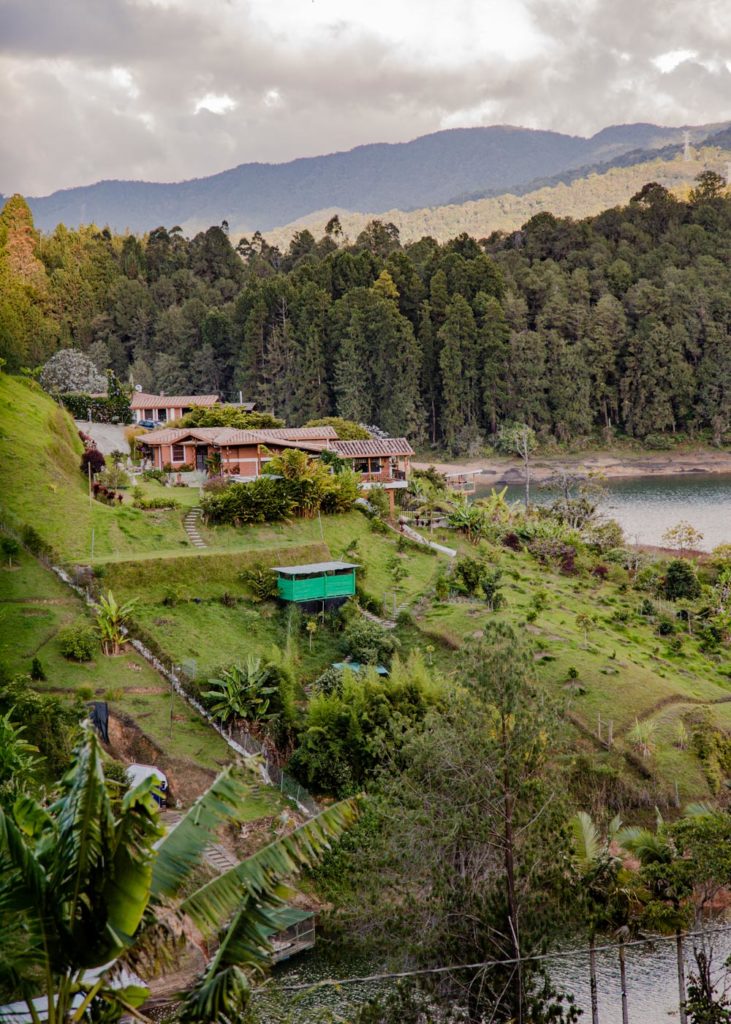
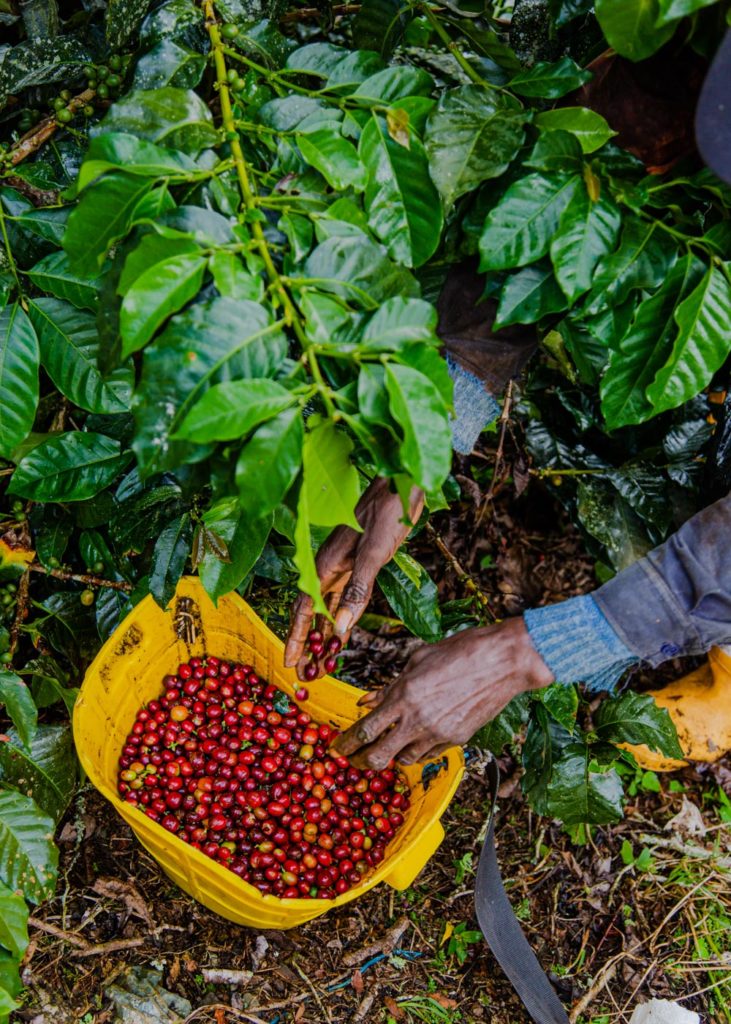
Figures in the headlines, however, have not been as kind to Colombia. For almost as long as Valdez has been its commercial avatar, the country has been locked in an asymmetrical civil war between the Colombian government, paramilitary groups, and armed guerrilla rebels, ones like the Revolutionary Armed Forces of Colombia (FARC) and the National Liberation Army (ELN). Roots of the conflict began in the mid-1960s, seeded by political tensions and claims over land, but the latter half of the conflict was shaped by the booming illicit drug trade. Violence from cartels in Medellin, Cali and Norte del Valle disrupted transportation, commerce and everyday life in Colombia for decades, overshadowing its more industrious, benevolent coffee reputation. It’s estimated that over five million civilians were forced to flee their homes from 1985-2012, creating the second largest population of internally displaced persons as a result. By 1991, Medellin was known as the “murder capital of the world,” a nickname that had faded by 2017 when it was no longer ranked among the world’s top fifty most dangerous cities.
Today, this past is not forgotten, but an ardent message of “We are not ‘Narcos’” deeply permeates the country, reiterating that is an identity reserved for a few thousand individuals, as compared to the nearly 560,000 coffee farms employing more than two million Colombians. Years after a U.S. government aid package (PLAN Colombia) donated millions of dollars to eradicating illicit crops in 2002, and a historic peace agreement led to FARC disarming in 2017, programs have emerged from the clearing dust to ensure the benefits of growing coffee continue to outweigh the alternatives. Programs like Producers to Market Alliance’s Coffee for Peace.
The program’s driving point is simple: where there is a lack of opportunity, fuel for violence remains. Coffee for Peace works in conjunction with the FNC, which offers a garantía de compra, or guaranteed purchase policy, for all Colombian coffee. This is a unique agreement; Colombia is the only coffee-producing country to offer something like the garantía, and it ensures the FNC will always buy coffee beans at a transparent price from any producer, of any amount, on any given day of the year. The majority of Colombia’s coffee growers are small, operating farms of less than five hectares, so without any independent leverage on a global economic stage, the garantía promises a financial return for their work—if their beans make the grade. This is the importance of Coffee for Peace.
“The FNC has done a tremendous job of providing training and outreach throughout Colombia,” continues Pohl. “But in areas where there was violence and war for decades, [coffee training] has been more difficult. There is much yet to be done.”
Odd as it may seem that the largest producer of washed coffee—and the home of Juan Valdez—would need guidance in its craft, but it’s the quality of that coffee that grants access to the public services that bolster Colombian life. Although co-ops primarily serve as buying stations for coffee beans, they also provide key resources for its members, such as farming supplies, finance and entrepreneurial support, health services, and even leadership development to equip young students to remain in rural areas after they graduate. By working with local co-ops in six different regions of Colombia, like the Cafioccidente Cooperative in Restrepo Valle de Cauca or Cooperativa Antioquia in El Penol, Coffee for Peace can reach farms that have historically been cut off from coffee education due to violence, a lack of laborers, or weak infrastructure (Many roads in Colombia are still actively mined).
“We want [to be] very simple with growers, creating a program to create nice, quality beans in the area and give them more value with the coffee,” says Jaime Duque, a consultant with Coffee for Peace.
Duque has helped implement a microprocessor program with co-ops, training farmers in best practices on all stages of coffee production from identifying and picking the ripe cherries to how to wash, dry and store processed beans. Tiny shifts, like a tweak in a de-pulping machine’s calibration or stacking bags in a different configuration, can drastically improve a coffee’s quality. With less defects and an increased yield, a co-op has more coffee available to purchase, the grower makes more money in return, and a roaster receives a better final product.
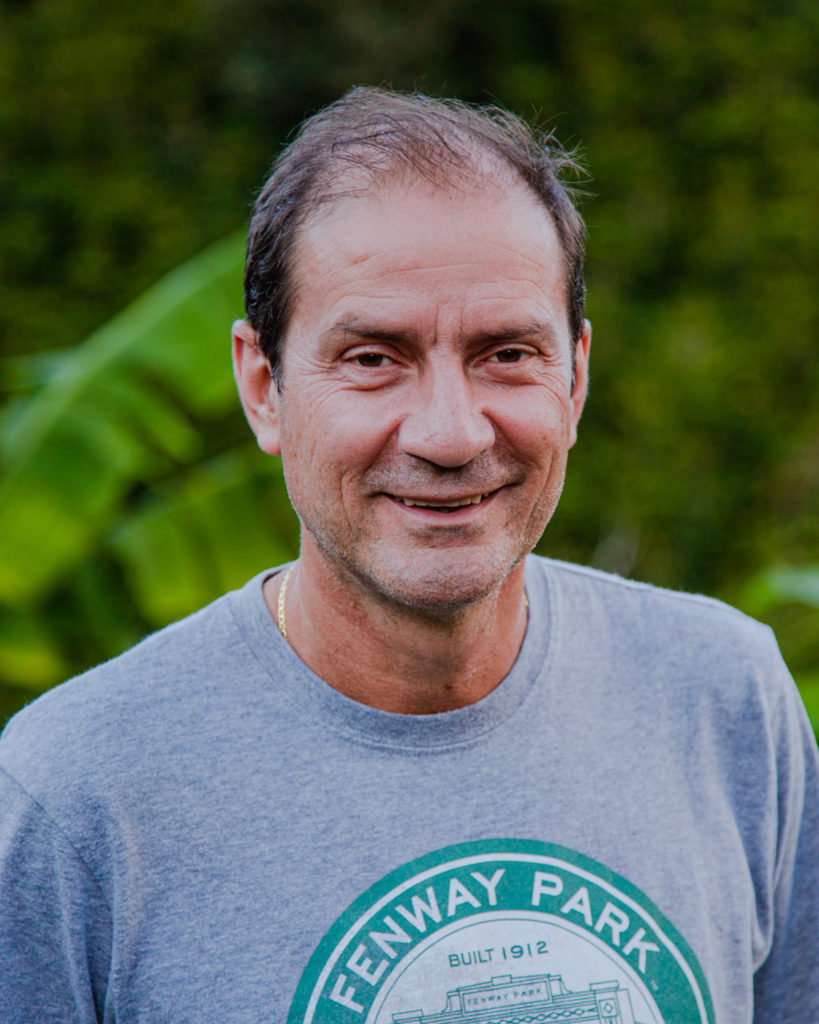
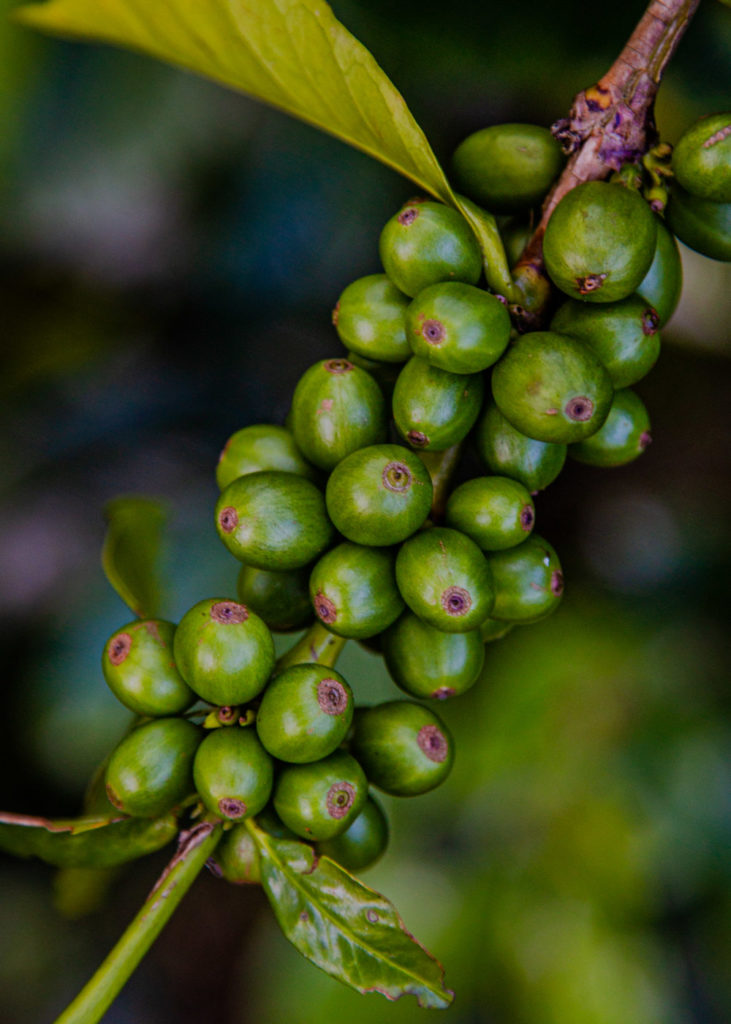
Duque stresses this social ripple effect. “When you sell a pound of coffee, you are distributing money in many, many hands,” he explains, echoing the buying process from coffee grower to roaster. “But when you sell one gallon of oil, [the money goes to] just one company—Exxon, for example. That’s it.”
Mike McKim, founder and CEO of Austin-based Cuvée Coffee, understands how this bottom line extends down the line, and he wants his purchase power to underscore peace in very practical ways.
“Everything I do, I do with some sort of purpose,” he says, sitting in a café across the street from Cooperativa Antioquia. He’s in Colombia wanting to audit Coffee for Peace himself, witnessing first-hand the extent of the project’s impact. “I’m going to buy a meaningful amount of coffee from Colombia, so now I get to choose. Where do I want my investment to go? Where do I feel like I can actually make a bit of difference? That’s why this program attracted me.”
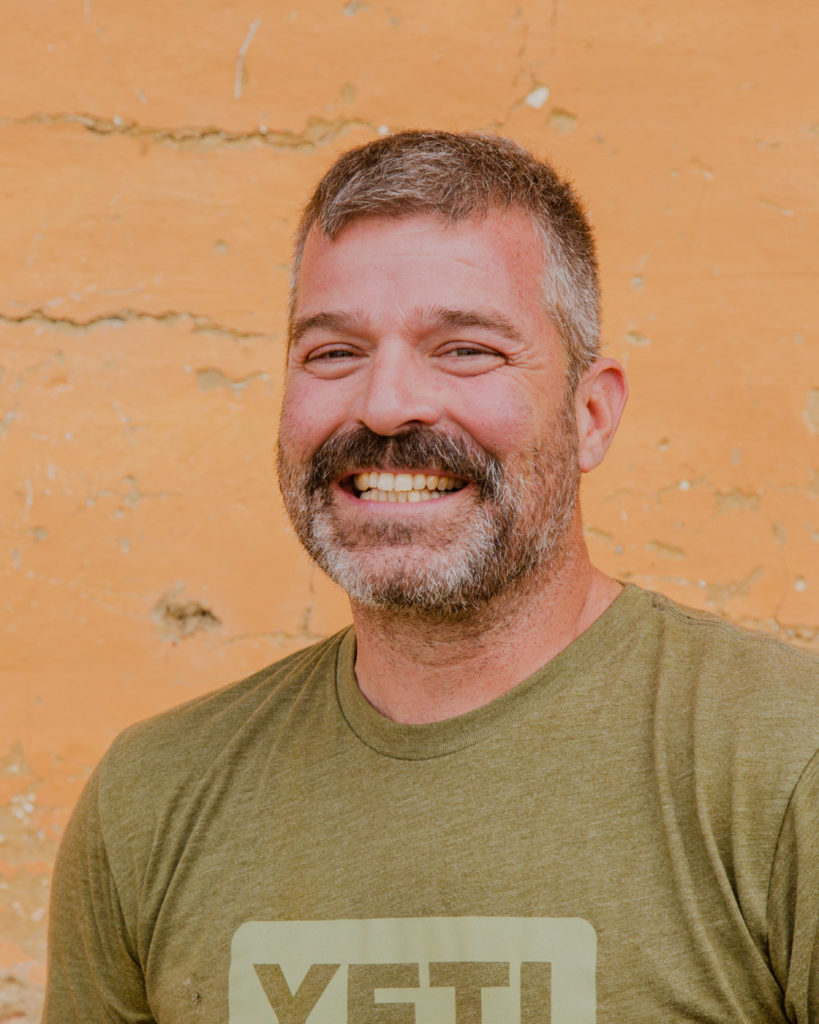
Now entering his second year of working with Coffee for Peace, McKim says it’s undeniable that the project is positively affecting lives. He purchases multiple containers of Colombian coffee a year, using it both for Cuvée’s single origin and for its blends. Sourcing from Coffee for Peace co-ops comes with a premium, but it’s one that can be traced back to the growers themselves.
An example of one such grower is Octavio Mora, a member of Cooperativa Antioquia for eighteen years who has produced coffee for twenty and is president of his local coffee growers committee. He lives in Ituango, a town and municipality in Northern Antioquia that’s seen a large share of the armed conflict due to its rich biodiversity and availability of natural resources. It’s located where the three Andes mountain ranges meet.
Speaking through a translator, Mora explains how grateful he is for the co-op, and how crucial they are for getting a good product [coffee] out and advocating for families. Twelve years ago, he was kidnapped by the ELN, one of the rebel groups that is still active today. At the time, anyone who was suspected to have money was kidnapped for ransom to finance the conflict.
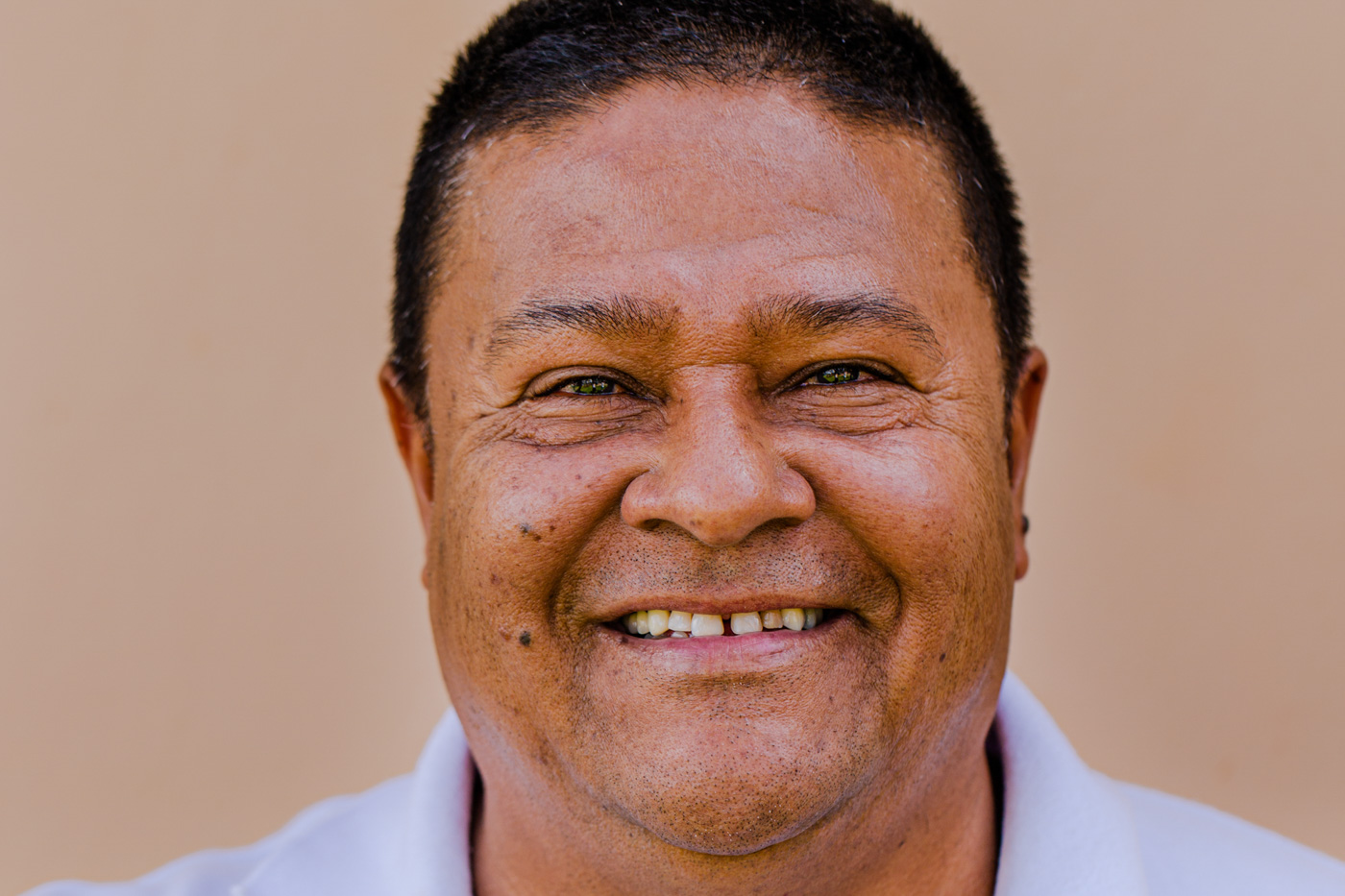
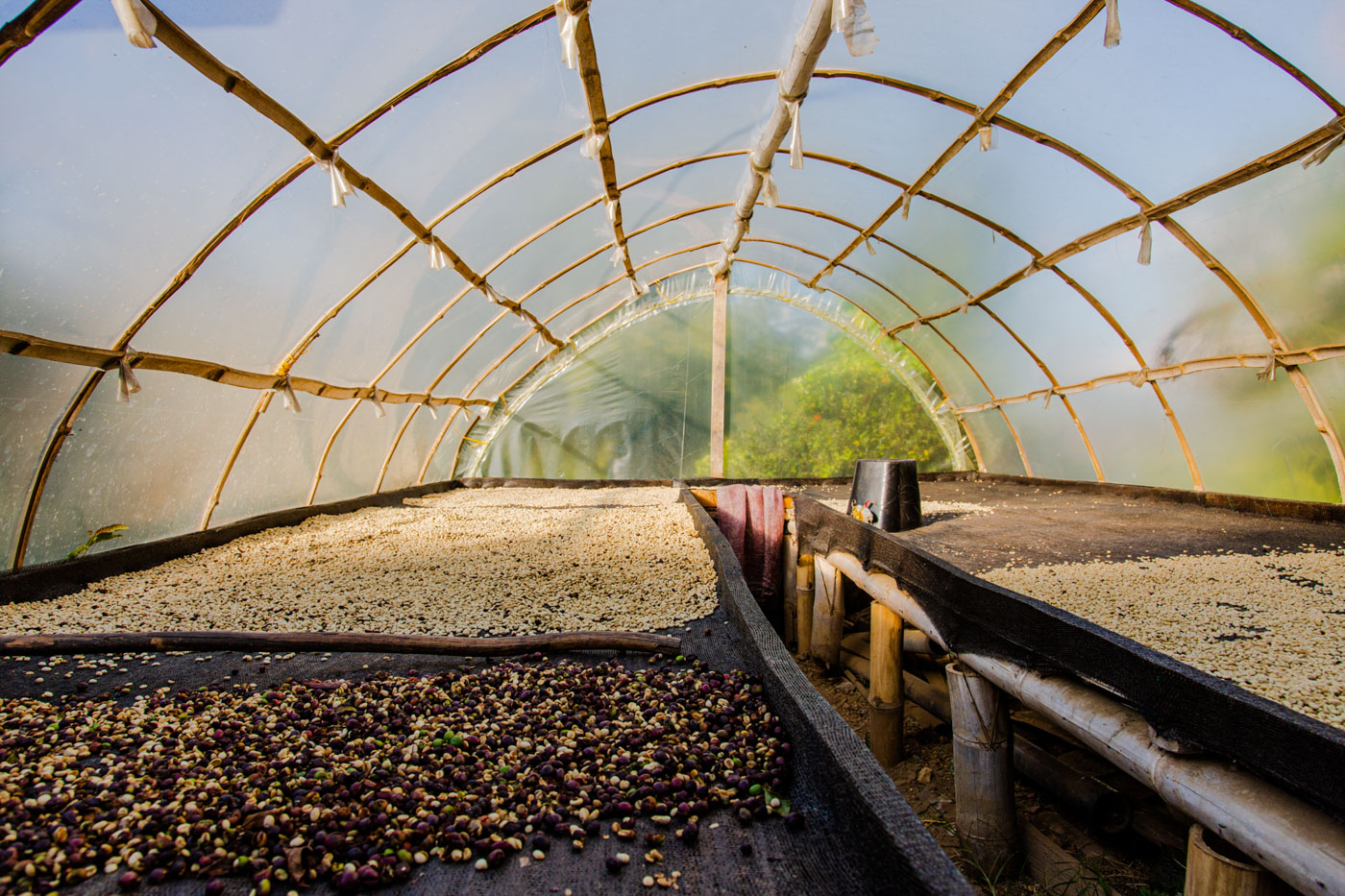
Thankfully, Mora was released, but the threat of violence hasn’t left his region. A friend of his, he explains, was forced to abandon his land only three months ago after refusing to grow coca. Mora says he’s never felt such pressure himself; sticking to legal crops—like coffee—enables him to associate with only positive influences and focus on his family. Support from the co-op makes this possible.
Of a similar story is Gabriela Panesso and Samuel Velez. Married for seventeen years, they’ve been producing coffee together in Amalfi, another Antioquia municipality, for just as long. Although Amalfi is a quieter area than Ituango, Velez is painfully aware of the cost of the country’s violence. Also speaking through a translator, he shares how the conflict originally forced him from his home in Salgar thirty years ago. When he moved to Amalfi, an armed group took over his home and his first wife left. He remarried, but when violence erupted again and his second wife, then pregnant, needed medical assistance, the rebels refused to let anyone in or out of the town and, as a result, she passed away.
After moving with his surviving daughter, Velez returned to Amalfi when the area settled down. That’s when he married Panesso. Today, they say, they feel hopeful and are doing extremely well. Working with the co-op (where they have been members for over ten years) and a Starbucks training program gives them this sense of purpose. Coffee, says Velez, is his identity; he feels at home with the coffee.
Panesso elaborates, sharing that peace is something that begins at home through her family, teaching her children and grandchildren to be good people. Velez smiles, agreeing that peace means treating people well.
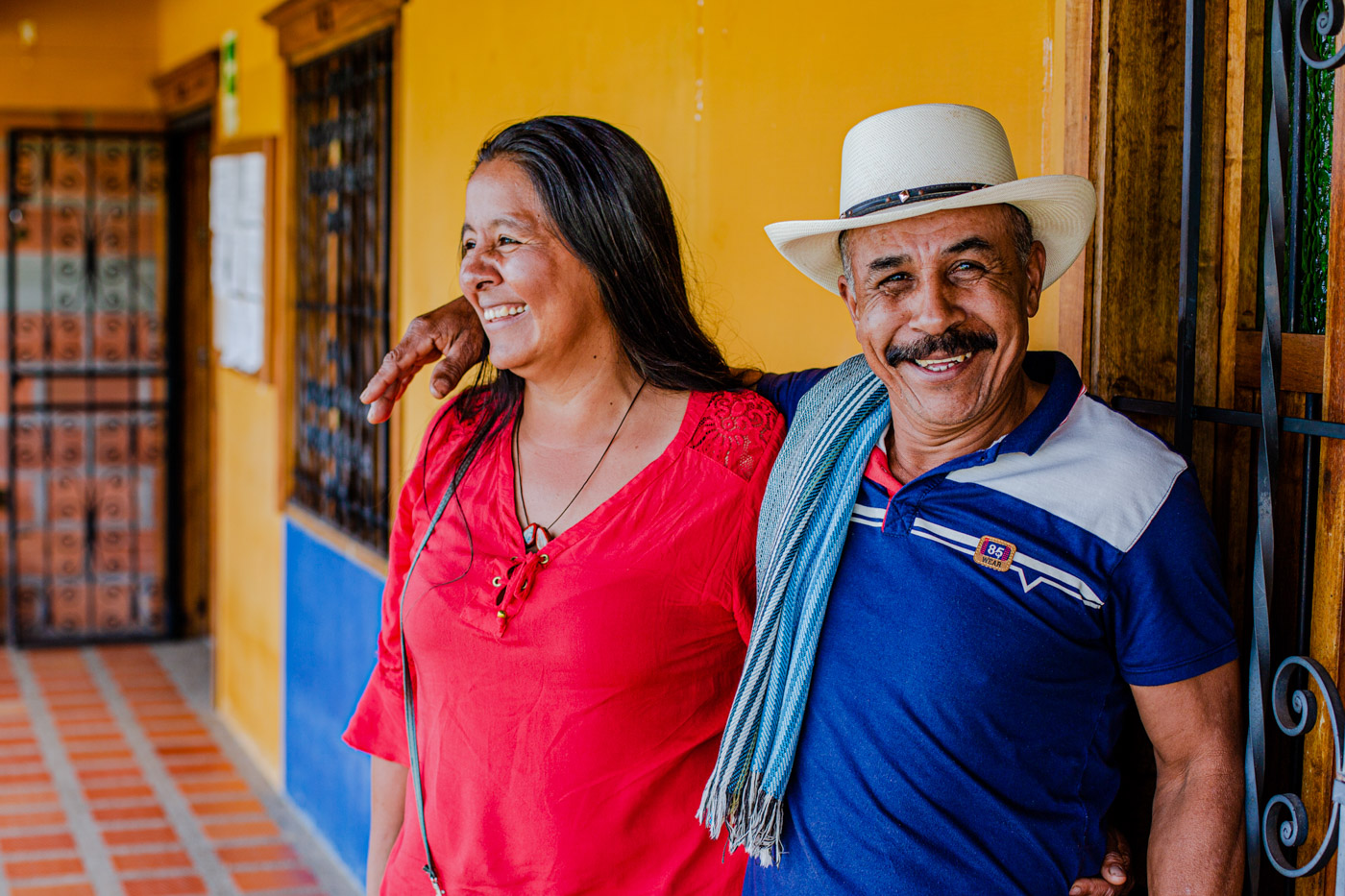
***
“Why do people grow illicit things? It’s because they need to make a living. They have families. They need to eat,” says Juan Lizano, senior trader for The Coffee Source, a U.S. importing company based in Costa Rica. Fostering sustainable relationships between origin and roasters, Lizano exports and sells coffee to McKim for Cuvée from Colombia, specifically Coffee for Peace co-ops.
“If you look at the [coffee] market, the price has been very depressed under the cost of production,” he continues. “When we have these partnerships—the roaster [Cuvée] who knows where the coffee is coming from, the co-op who knows where the coffee is going, and then, in this case, the USAID [Coffee for Peace] program—it gives another meaning. Everyone helping out in the same area is good for everyone.”
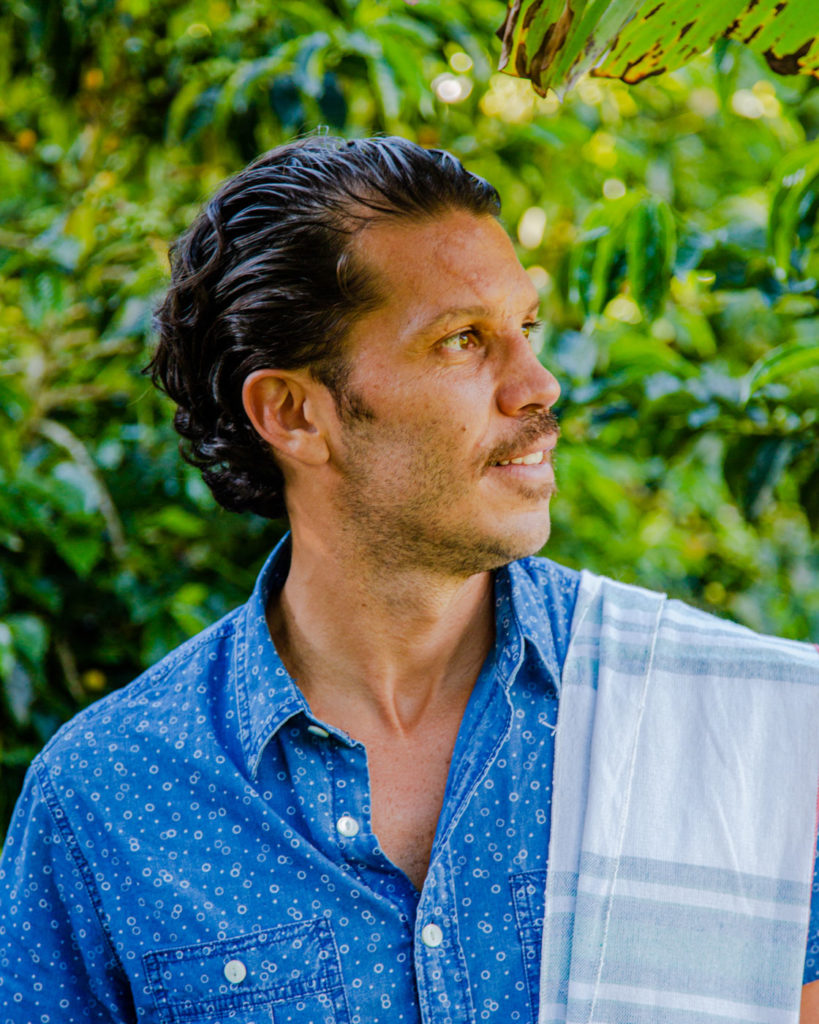
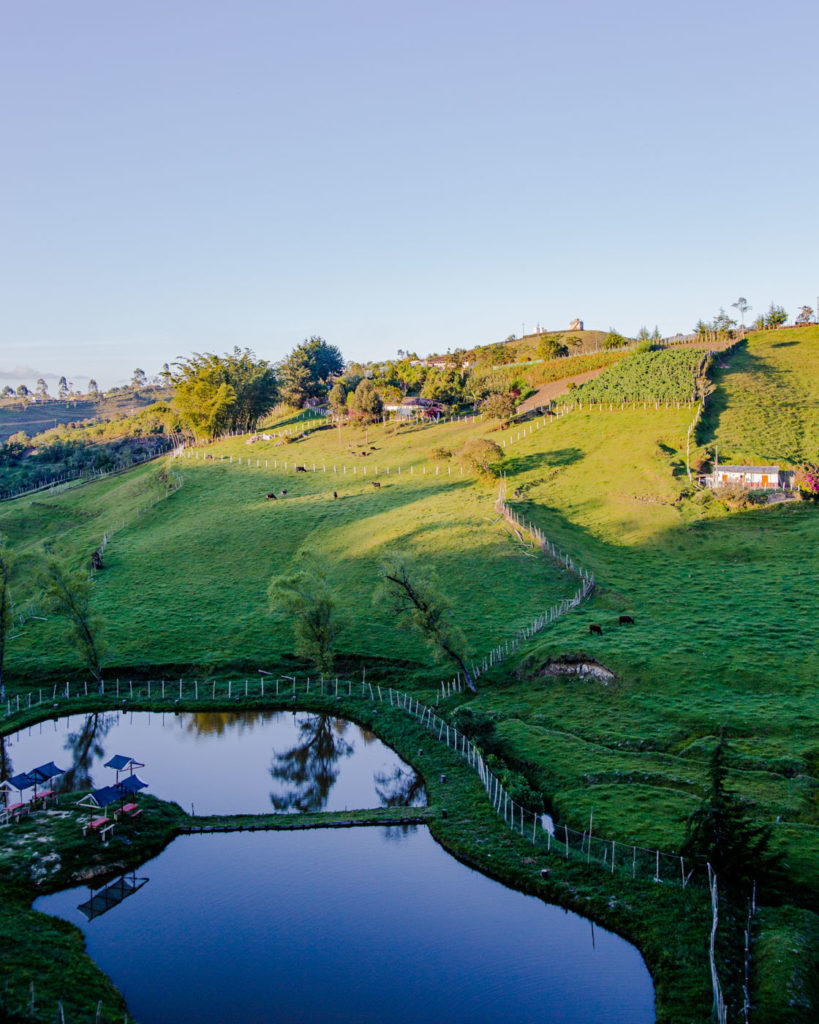
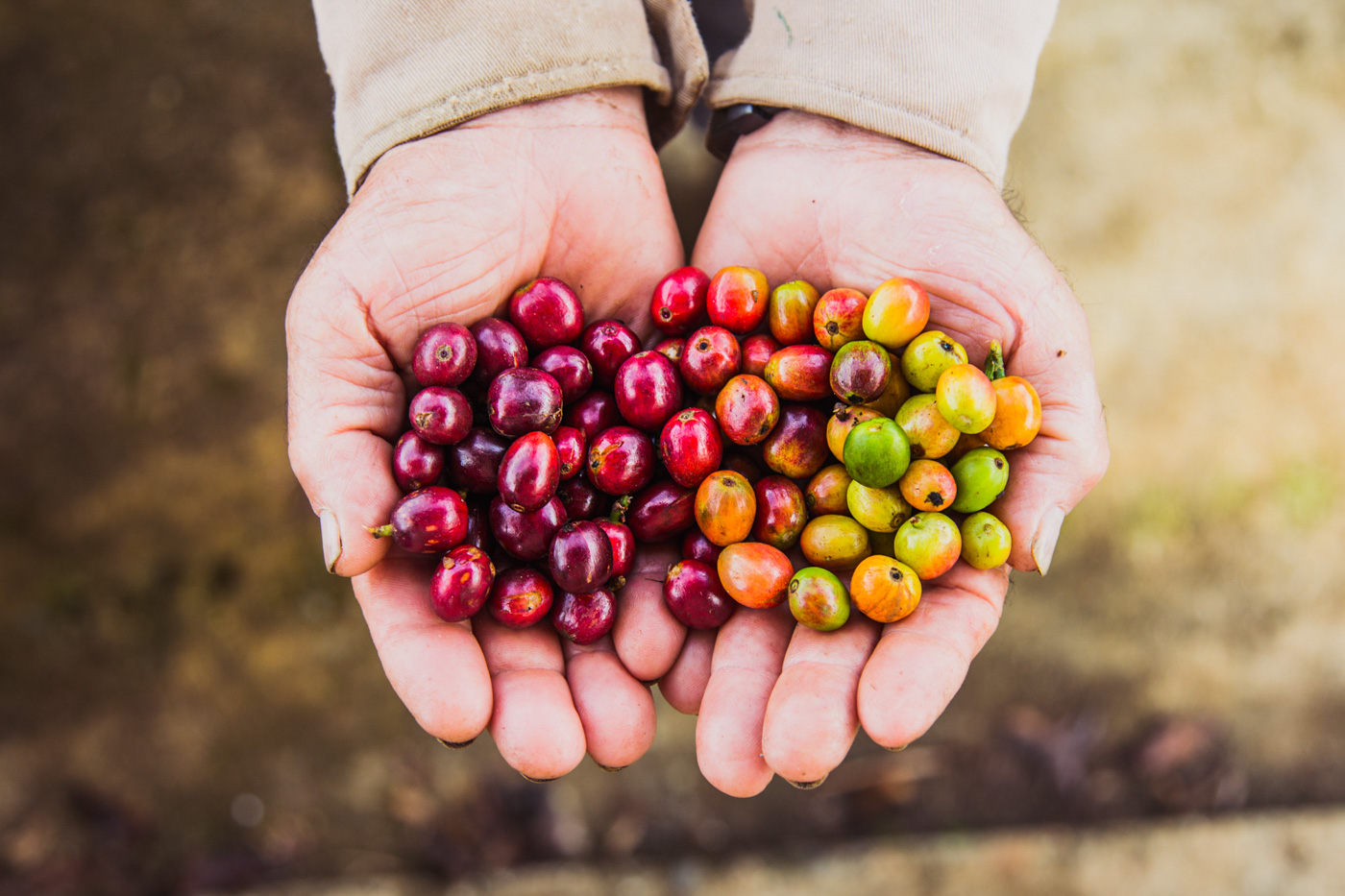
Nevertheless, peace in Colombia isn’t a linear process. Cocaine production in the country reached a record-high in 2017. As of August 2019, a group of FARC rebels was beginning to rearm, citing the government’s failure to protect and build infrastructure in poor, isolated rural areas as part of their peace deal. Considering that the systemic issues at play—inequality, access to basic services, a living wage—are felt on an individual level, then it stands to reason that with individuals is a good place to start.
“Holistically, meaning from seed to cup, the coffee industry has an ability to foster global change, both positive and negative,” McKim explains. “We focus our efforts [at Cuvée] on practicing what we preach, ensuring our growers and their communities are supported.”
As Velez shared, peace means treating people well. In Colombia, to know this peace is to drink its fruit.
This story was made possible with the collaboration of Cuvée Coffee who supported our team with logistical and travel accommodations.






Our comments section is for members only.
Join today to gain exclusive access.